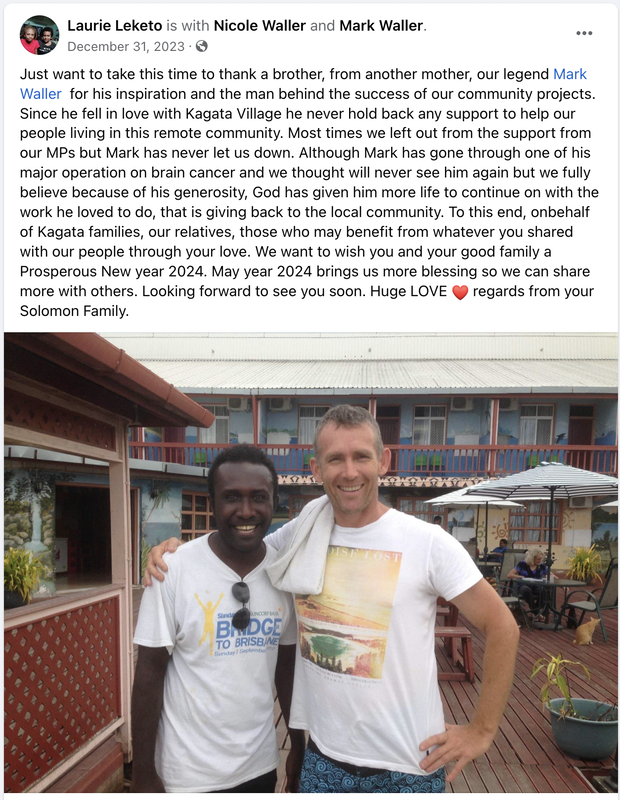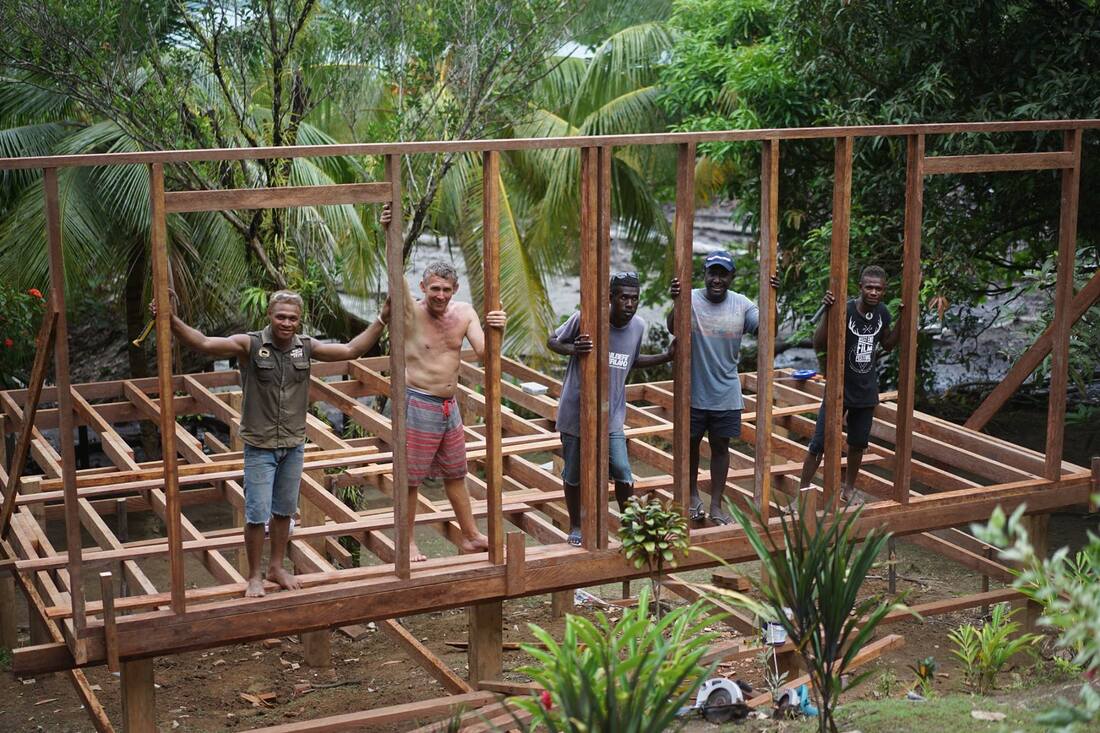|
Kagata Surfing Frens was established by local tourism operator, Mr Laurie Leketo, whose mother Annie is traditional owner of the island with her sisters.
Kagata Surfing Frens is 100% locally owned, which gives the opportunity for most local people to participate directly and indirectly in the operation. It is a pilot project in the western remote part of Santa Isabel, and will slowly grow to other remote parts of the Solomon Islands. Our Mission is to provide the best achievable surfing experience with our uncrowded waves, village stay lifestyle, taste of our unique local cuisine and culture, and creating an unforgettable life changing experience in the Solomon Islands. Kagata is not a resort. It is a real Solomon small village stay with 12 to 20 people, mostly related by blood or marriage. Ten minutes North West of Kagata is Vavaghio Guest House, another stay run by a local family. Learn more about Vavaghio |
The Kagata Family
WELCOMING smiles will win you in heartbeats. You are with friends. You'll fall in love with the easy going charm of the Solomon Islanders.
|
|
Kagata Surfing Frens
Community Projects A team of people, lead by Australian, Mark Waller and guided by the local community have been
|
Logging Threat
Our villagers struggle to keep loggers at bay. The picture below shows what happened nearby in the last year. This is the only logging in this wilderness part of Santa Isabel Province. With massive community action, this unwanted destruction of our lands was halted. Eco tourism helps resist by providing employment and resources for our community |
Kagata Village
|
In Santa Isabel province, one of the most unvisited islands in Solomon Islands, Kagata Village is a small group of traditional grass houses with 12 - 20 family, mostly related by blood or marriage, including children, young people and older people.
This remote corner of Melanesia sees very few tourists, and as a result, gives travelers the opportunity to experience real Pacific Island culture, history, endemic plants and animals without the presence of mass tourism. In this wilderness there are no roads, no tracks, limited communications. The Native people of Santa Isabel province are Bugotu. However, Isabel was divided into regions which include Bugotu, Gao, Maringe and Kia (Zabana). The provincial headquaters are in Buala. Brief History On the island of Barora Fa, West Isabel Kagata is situated in a mangrove harbour. The village was developed 10 years ago by three sisters when they inherited the land from their mother. Languages spoken are Zabana (our mother tongue), katupika (Choiseul tongue), Pijin and English. In our customs and culture, everyone in the village has respect for each other. The people are friendly and hospitable, and will treat you as part of the family. Customary Land 90% of land in Solomon Islands is classified as customary land. It is handed from mother to daughters. When out of the main town areas, there will be what known as “kastom” fees; these are payable to one of the family owners of the land you are visiting. These are normally negligible when visiting tourist places/attractions, but something to be aware of. Kia - Bigger village centre 30 minutes by boat, Kia the biggest village in Isabel Province is our only centre for shopping, medical and communication using mobile (Telstra). Kia provides basic rural support and services to our communities. Houses are built on silts (in water). A shop sells a small range of necessities and a little fishing tackle. Beer prices are comparable to Australian. A quite acceptable local brew, ‘SOLBREW’ and block ice is available in Kia. Kia is where most of our extended families live, as well as our head chief (chiefly system) responsible for our overall affairs. There are very few people in Isabel, only a scatter of small settlements, usually less than 20 people. North from Kagata on the tip of Santa Isabel are smaller islands with deep channels connecting east-west oceans. Radical tidal movements and steep coral faces fade into dark blue. Totally untouched tropical jungle and ridiculously beautiful villages. Overnight camps on small islands with coal grilled fish and a hammock is also an option. It is very wild - big jungle, big fish, big croc’s (that mostly behave themselves!) You can go night fishing, night diving and spear fishing and even crocodile watching. |
|

Our Facebook group feed










































